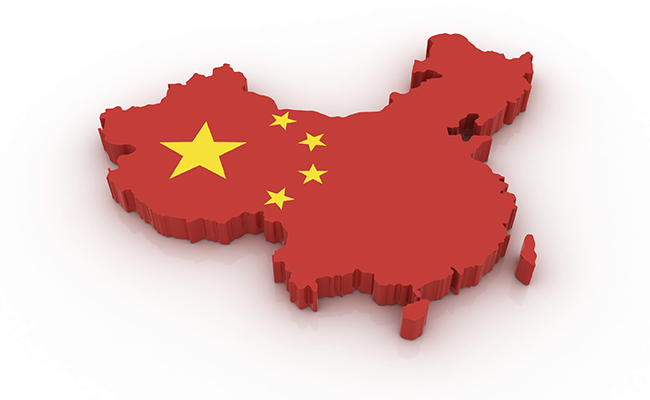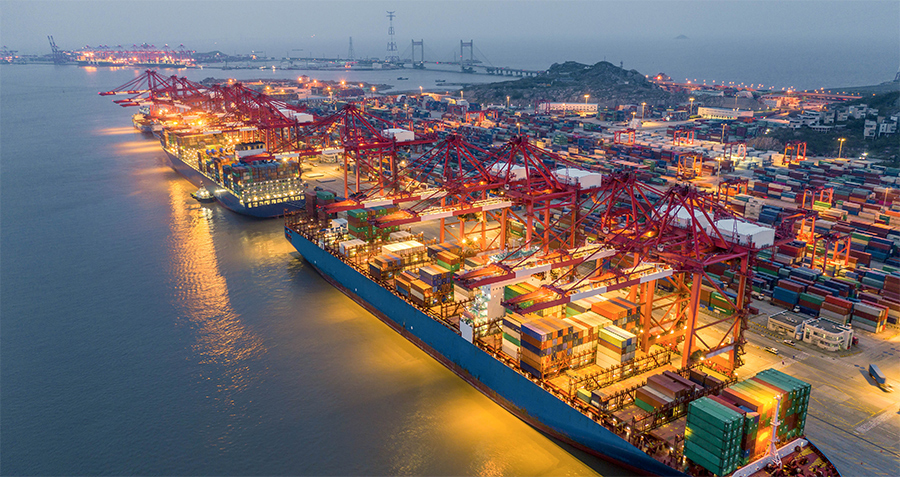The week that was: Beijing hosts the annual CPPCC and NPC meetings; Chinese GDP growth target for 2014 announced; austerity measures in full force; and solar cell company heads for China’s first corporate bond default.
All eyes this week, understandably so, are on Beijing where delegates from all over China have gathered for the two annual sessions of China’s top legislature, the National People’s Congress (NPC), and Chinese People’s Political Consultative Conference (CPPCC). Lianghui, as these meetings are called in Mandarin, set the agenda for the coming year in terms of approving policies, the budget and significant personnel changes.
The delegates represent different Chinese provinces, municipalities and autonomous regions and the army. There is special representation from Hong Kong, Macau and Taiwan. The meetings also have a dash of celebrity-hood: the list of attendees includes Hollywood actor Jackie Chan, basketball star Yao Ming (Jackie Chan and Yao Ming are pictured above), Nobel Prize winning author Mo Yan and Baidu CEO Robin Li, among others. Also in attendance are several billionaires: according to the Financial Times, the NPC includes 86 renminbi billionaires on the Hurun China Rich List while the CPPCC includes 69.
Of what has been discussed so far (the meetings will go on till 13th March), here’s what’s noteworthy:
China’s Targets GDP Growth of 7.5% (But It’s Flexible)
In his ‘work report’, Premier Li Keqiang emphasized that “China has the foundation and conditions for maintaining a medium-high rate of economic growth for some time to come” and announced a growth target of 7.5% for this year. In the past China has routinely overshot its growth targets (8% for seven consecutive years starting 2005) with actual growth averaging 10%. However, in recent years with the economy slowing down, the targets have become more realistic: last year’s target was 7.5% and the country ended up achieving 7.7%.
However, on Thursday, Finance Minister Lou Jiwei said that it is okay if the country missed its growth target by a little bit as long as it created jobs. “Whether GDP growth is to the left or to the right of 7.5%, that is not very important. What is important is job creation,” he said as per a Reuters report.
Some of the other goals highlighted in Li’s work report are keeping consumer price inflation under 3.5%, creating 10 million new jobs, keeping urban unemployment rates below 4.6% and ensuring that salaries and income grow at the same pace as the economy.
According to Bloomberg, “the government has pledged to move away from growth at all costs as it tries to clean up the nation’s air and water, and control an unprecedented debt surge that’s evoked comparisons to the run-up to Asia’s financial crisis.”
Not everyone is convinced that the 7.5% growth target is ideal. Speaking to Bloomberg, Yao Wei, China Economist at Societe Generale in Hong Kong, said, “It is going to be very challenging to achieve everything promised in this work report. Speeding up reform, fighting pollution, managing debt risk and yet the same growth target–something has to give.”
War on Pollution
As thousands of delegates descended on the capital to attend the NPC and CPPCC meetings this week, two things were conspicuous by their absence: Beijing’s infamous smog and PM2.5 face masks. While no one can say for sure how China’s capital miraculously got blue skies this week, it seems like the government is intent to keep it this way.
In his address at the NPC meeting, Premier Li Keqiang said, “We will declare war on pollution and fight it with the same determination we battled poverty… Smog is affecting larger parts of China and environmental pollution has become a major problem, which is nature’s red-light warning against the model of inefficient and blind development.”
In his speech, Li talked of shutting down 50,000 small coal-fired furnaces, reducing sulphur and nitrogen emissions from coal-burning power plants, removing old, high-emission cars from the roads and promoting cleaner diesel-fueled vehicles, the Washington Post reported.
According to the Financial Times, central government spending on energy conservation and environmental protection is budgeted at RMB 210.9 billion for this year, “up only marginally from last year’s original budget”.
Lean Government
Government austerity measures, a recurrent theme since President Xi Jinping assumed office last year, will continue. Li Keqiang said that government spending on three big-ticket items of public consumption—overseas visits, official vehicles and receptions—will be pared down further. Last year’s austerity drive is already bearing fruit. As per China Daily, “Last year, spending on overseas visits, official vehicles and receptions was reduced by 35% by central government bodies and 26 percent by provincial-level governments.”
Li also announced a ban on construction of new government buildings and the renovation and expansion of existing government buildings. The total number of government employees will also be reduced.
The austerity drive also reflected in this year’s meetings: according to China Daily, the hotel for the delegates has no fresh flowers in the rooms, and if a guest doesn’t consumer the fruits in his room for two days, they are not replaced with fresh ones. Delegates were asked to bring their own toothbrushes, slippers and toiletries. Meanwhile, plastic water bottles are to be reused and delegates have been provided labels to stick on to the bottles and write their names. At the meetings, “free-flowing tea” has been replaced with one cup of tea, as per the South China Morning Post. There is no expensive food or alcohol. Most documents are digital and not printed. “The NPC should serve as a model of being results-oriented and economical,… and (we have) to place ourselves under the supervision of the public,” NPC spokeswoman Fu Ying said as per the SCMP.
In other news…
The IBM-Lenovo Deal Faces Rough Weather
The ink is barely dry on Lenovo’s $2.3 billion deal to take over IBM’s low-end server business, and trouble has started brewing. More than a thousand employees of an IBM factory in southern China have gone on strike. Their grouse? They are not happy with the terms of their transfer to Lenovo. According to the Wall Street Journal, plant workers said that IBM wasn’t “offering sufficient severance for those who opt to leave” and those who want to stay are worried about pay cuts.
“Protests at foreign-run plants in China have become more common in recent years after large mergers. Workers have expressed concern over layoffs, pay cuts and reduced severance following the acquisitions, according to worker-rights groups,” the WSJ said. In recent times, such protests have happened at Cooper Chengshan (Shandong) Tire Co. and at Pepsi’s China plants.
China’s ‘Bear Stearns Moment’
In what experts are terming as China’s ‘Bear Stearns moment’, Shanghai Chaori Solar Energy Science and Technology Co., a Chinese solar cell manufacturer, is heading for corporate bond default. According to the Wall Street Journal, “The heavily indebted company had warned on Tuesday that it wouldn’t be able to meet interest payments totaling 89.8 million yuan ($14.7 million), citing a credit squeeze and its inability to raise enough funds to make the interest payments.”
And why is this significant? This would be the first bond default in the history of modern China. Speaking to Quartz.com, Leland Miller, President of research firm China Beige Book International, “Letting this default happen could be a massive deal for a couple of reasons. For one, a default will force the market to start pricing in risk… Anything that can inject risk in the system and differentiate what is backstopped and not backstopped is a very good thing for China. Right now everyone thinks the banks are backstopping everything and that the government is backstopping [the banks]. And that’s very, very dangerous, especially in a year where you’re likely to see a lot of defaults.”





















